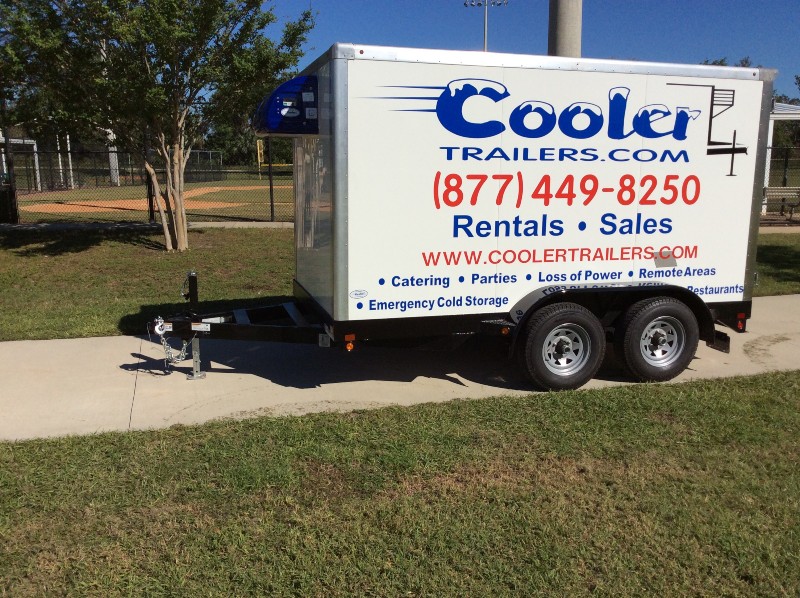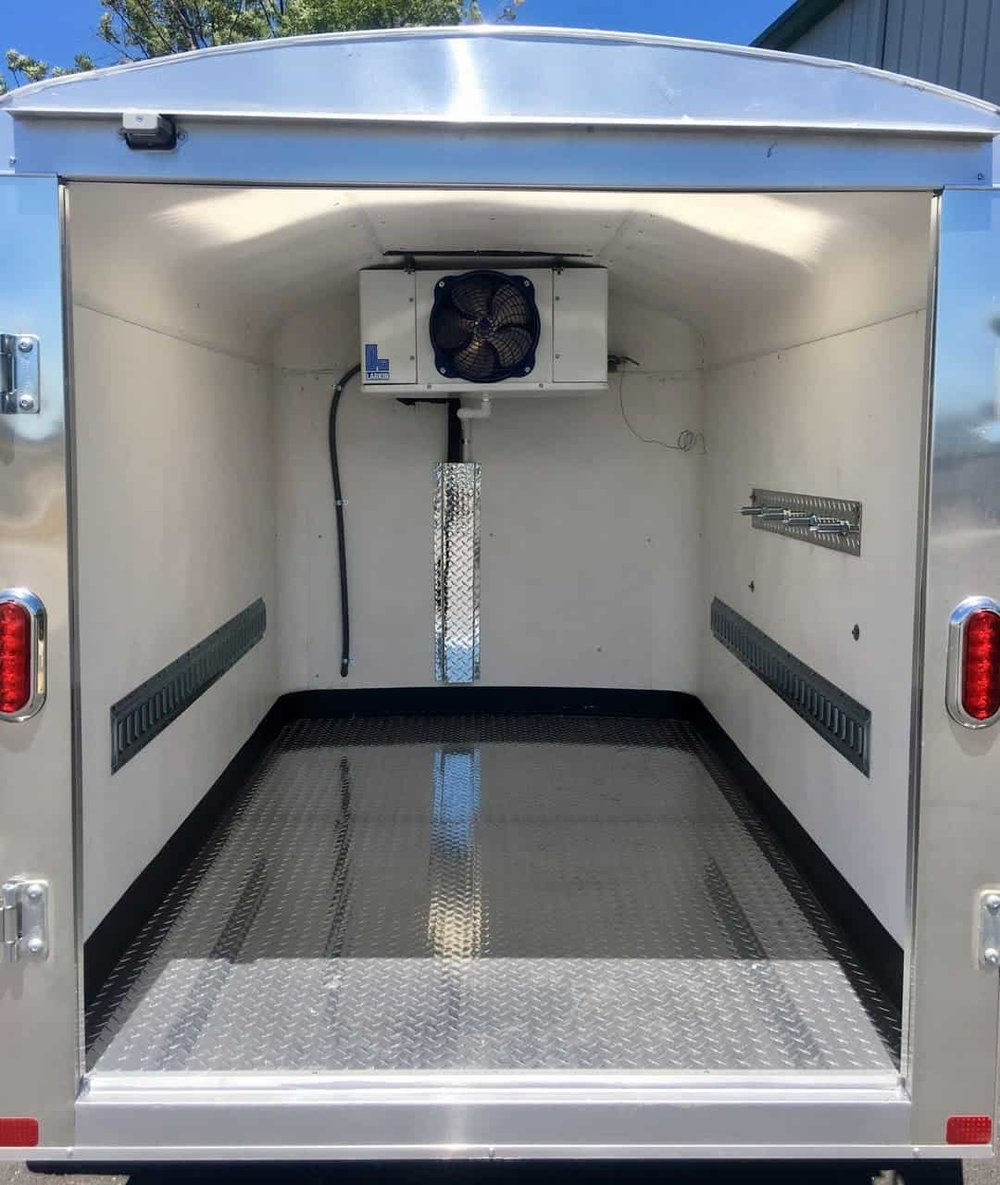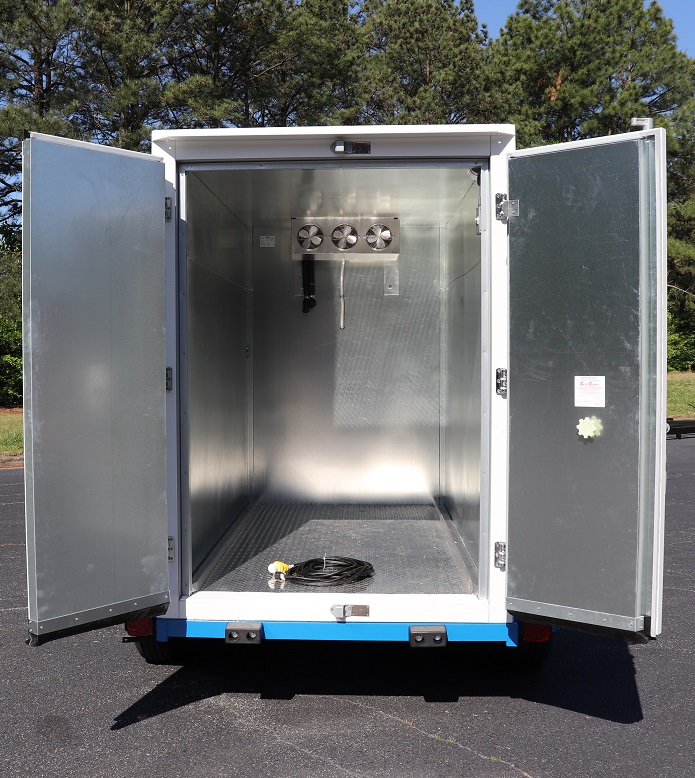Your Overview to Small Refrigerated Trailer-Cooler Trailers: Maintain Points Chill
Your Overview to Small Refrigerated Trailer-Cooler Trailers: Maintain Points Chill
Blog Article
The Ultimate Guide to Selecting the most effective Chilled Trailers
When it comes to choosing the ideal refrigerated trailer for your service needs, various elements need to be very carefully taken into consideration to make sure optimum efficiency and effectiveness. From the different kinds of chilled trailers available to the key attributes such as dimension, temperature level control, and power effectiveness, each element plays an essential role in figuring out the best fit for your details requirements.
Sorts Of Refrigerated Trailers

The two primary types of cooled trailers are reefer trailers and insulated trailers. Reefer trailers, short for chilled trailers, are furnished with cooling systems that actively control the interior temperature level to keep perishable products at the necessary conditions during transportation.

Size Factors To Consider
Thinking about the measurements of the cooled trailer is important to ensure optimal storage ability and effective transport of perishable products. When picking the size of a cooled trailer, it is critical to consider the volume of products that require to be transferred. Bigger trailers offer more storage room, making them suitable for organizations with significant delivery needs. Smaller sized trailers are a lot more maneuverable and cost-efficient for companies with lesser tons or limited storage space at their facilities.
When figuring out the size of the refrigerated trailer is the measurements of the goods being delivered,One more factor to consider. Some items might have details size demands or need to be stacked in a certain way to avoid damage. Choosing a trailer dimension that accommodates the dimensions of the items will help preserve their quality during transit.

Temperature Control Functions
Efficient management of temperature level control in refrigerated trailers is important for maintaining the quality and safety of subject to spoiling products throughout transport. When selecting a refrigerated trailer, it is essential to take into consideration the temperature control features it supplies.
In addition, some cooled trailers come with multi-zone temperature level control abilities, enabling different areas to keep differing temperature levels as needed for various sorts of goods. When transporting a mix of perishable items with unique temperature demands, this function is particularly useful. Furthermore, trailers with efficient insulation and temperature level uniformity throughout the cargo space help stop cool or warm spots, making sure regular problems for all items being transported
Power Performance Factors
A necessary facet to review when choosing a refrigerated trailer is its power effectiveness, which plays official site a significant role in reducing functional costs and ecological influence. Power efficiency factors to think about consist of the insulation quality of the trailer, the kind of refrigeration system utilized, and any kind of additional functions that contribute to reducing energy usage. Top quality insulation is vital as it aids preserve the wanted temperature inside the trailer with marginal power loss. Modern refrigeration systems, visit site such as those making use of advanced modern technology like electric standby options or solar energy, can also enhance energy effectiveness. Furthermore, attributes like automated defrost cycles, temperature surveillance systems, and reliable air movement layout can additionally enhance energy usage. By prioritizing energy-efficient cooled trailers, services can not only minimize business expenses yet additionally lower their carbon impact, making a favorable payment to sustainability initiatives in the transportation industry.
Maintenance and Service Tips
Given the crucial duty of power performance in minimizing functional prices, it is necessary to develop an aggressive upkeep and service routine for cooled trailers to guarantee ideal efficiency and longevity. In addition, checking the trailer's tires, brakes, lights, and electrical systems is vital to assure safe and trustworthy operation. Teaming up with a reliable service copyright for routine maintenance checks and attending to any concerns without delay can considerably prolong the lifespan of the refrigerated trailer.

Final Thought
To conclude, picking the most effective refrigerated trailer involves thinking about numerous factors such as the kind of trailer, dimension requirements, temperature control functions, power effectiveness, and maintenance requirements. By examining these aspects very carefully, companies can guarantee they pick a cooled trailer that fulfills their particular requirements and requirements, ultimately bring about extra reliable transportation and storage of temperature-sensitive products.
The 2 main kinds of refrigerated trailers are reefer trailers and protected trailers (small refrigerated trailer- cooler trailers). Reefer trailers, go brief for cooled trailers, are outfitted with cooling down systems that proactively regulate the internal temperature to maintain disposable products at the necessary problems during transport.On the various other hand, insulated trailers are designed to keep the temperature level of the goods utilizing the insulation homes of the trailer walls. While they do not have energetic cooling systems like reefer trailers, protected trailers are suitable for goods that need protection from outside temperature level variants but do not require as stringent temperature control as subject to spoiling products.Reliable management of temperature level control in cooled trailers is critical for preserving the high quality and security of perishable products during transport
Report this page